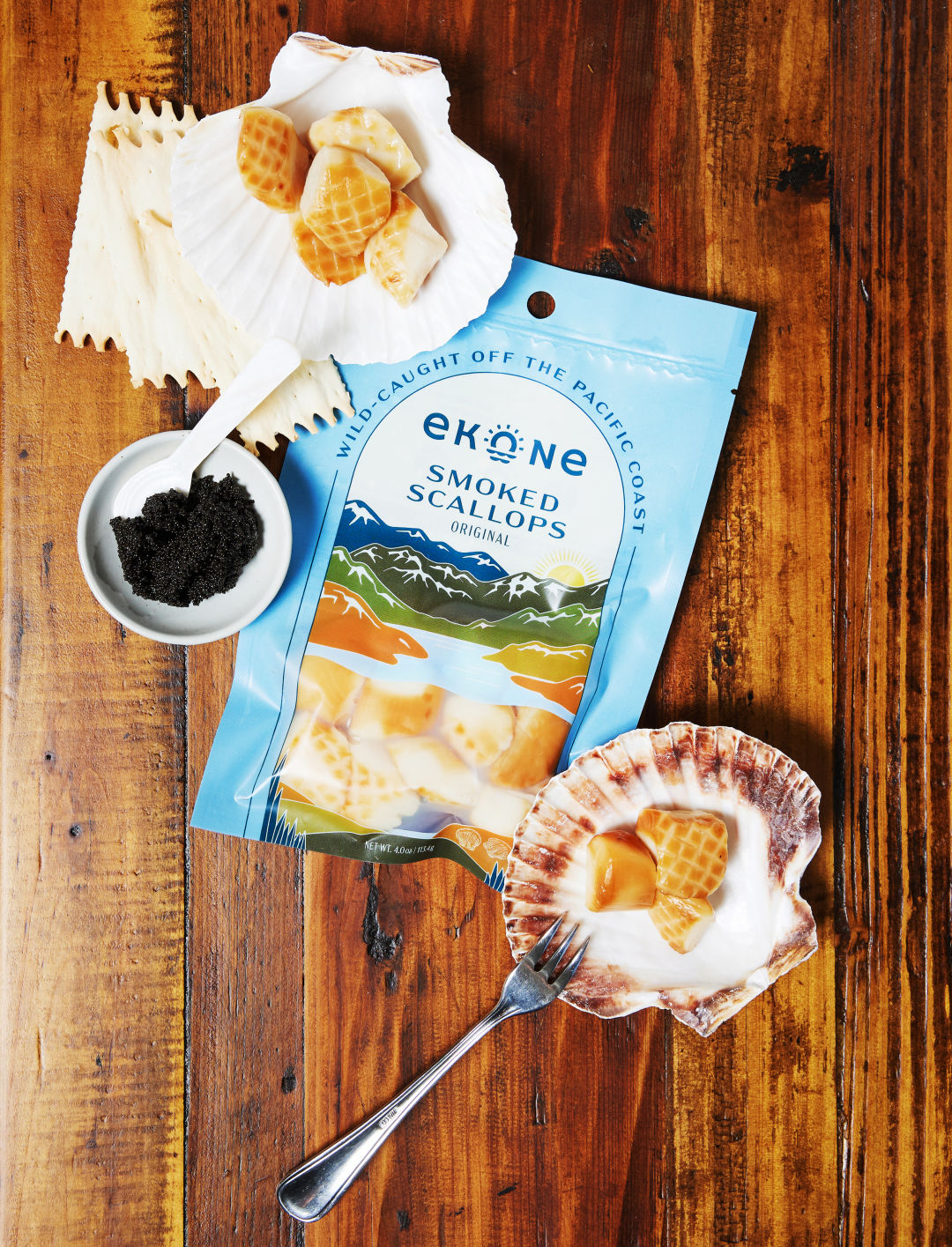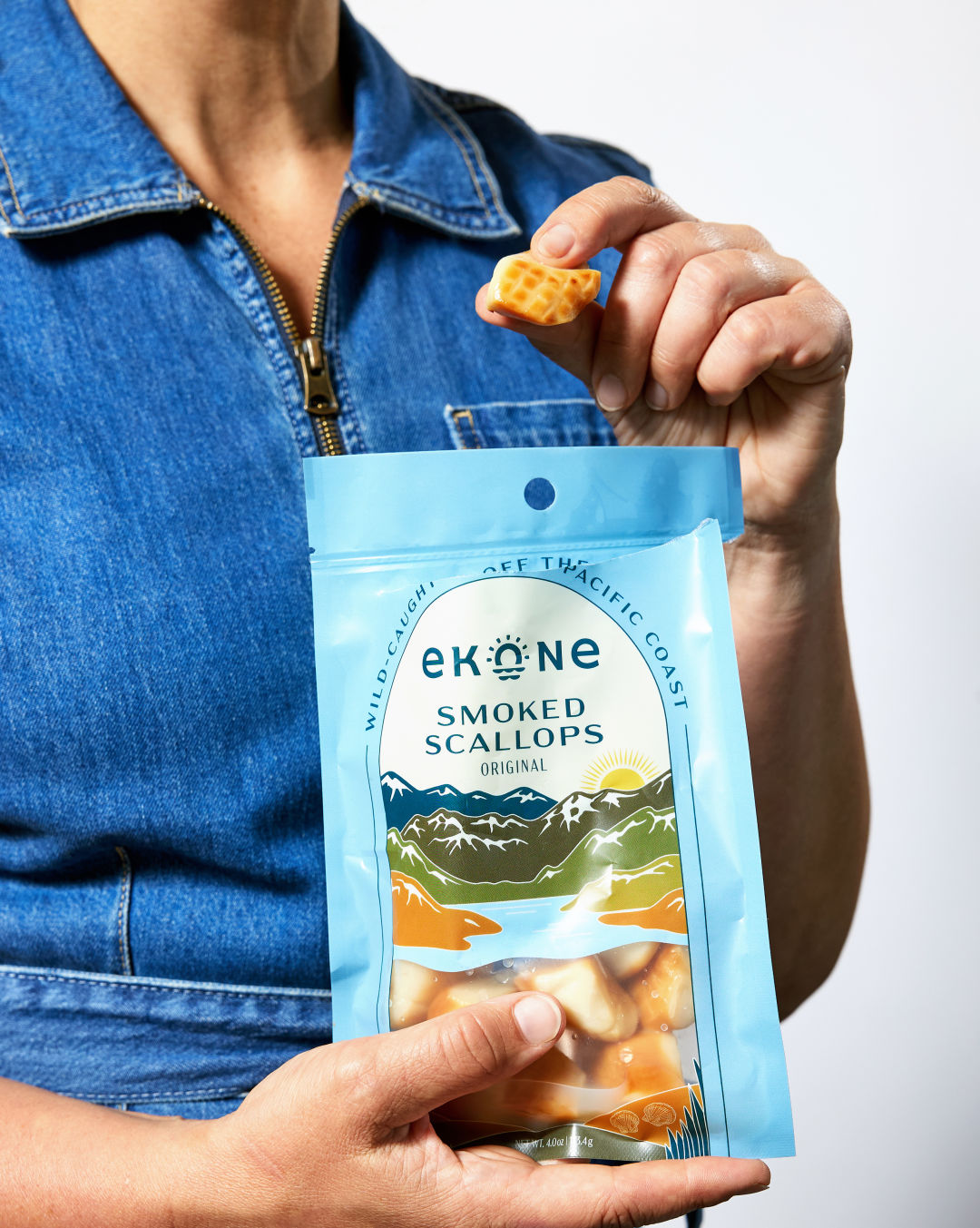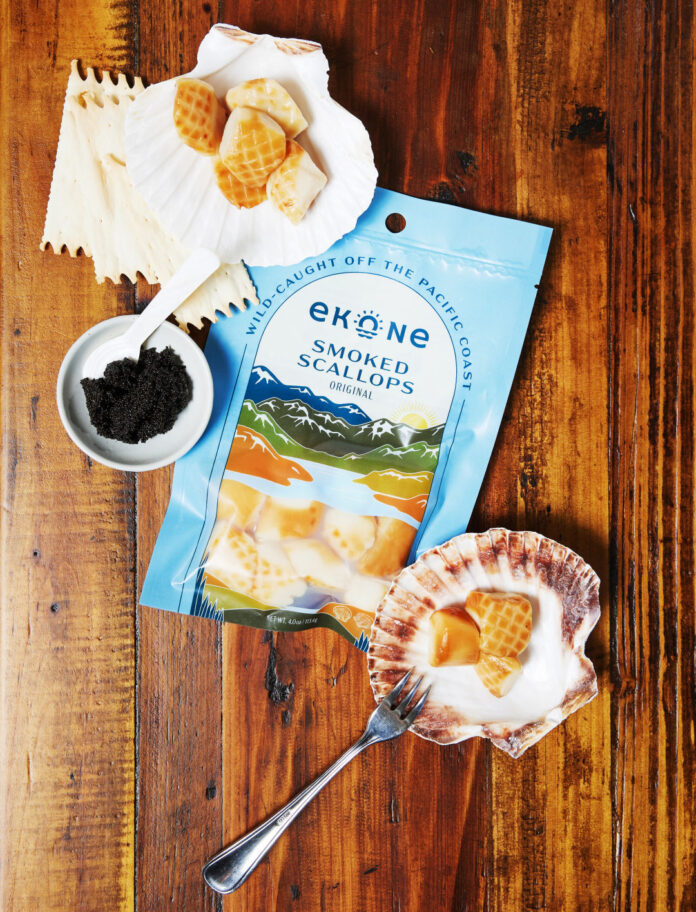This post was originally published on this site

The racks on which Ekone smokes its scallops tattoo them with crisscross patterns of rich bronze, not unlike the shade of a perfectly toasted marshmallow. Only they need no chocolate or graham crackers; they need nothing at all. Notoriously temperamental, scallops seem to actively resist any efforts to thread the needle between translucently raw and rubbery overcooking. Yet, Ekone’s packaged smoked scallops come out impressively and consistently tender. Each plump, buttery scallop sings with the hypercondensed flavor of hours soaking in brine and shvitzing in the smokehouse.
They are beauty, they are grace, they are one of the best seafood products in a state full of such treasures. But where the heck are they? Taylor Shellfish Farms, of which Ekone is a subsidiary, carries them on its website, but they’re hard to find without specifically seeking them out, and require pricey refrigerated shipping. A few local seafood stores carry them, but even Taylor’s own Melrose Market location doesn’t.
For these scallops and those who love them, this is concerning. Companies cut favorite flavors and products all the time. Hell, Trader Joe’s seems to do it as much for sport as anything else. But Taylor Shellfish Farms has a list of reasons as long as a geoduck’s shaft to cut production of these sweet snacks.
Taylor, in general, focuses on the aquaculture shellfish it grows itself, but it buys the wild-caught Alaska weathervane scallops from a supplier. The perishable hot-smoked scallops come in a pouch, even though Ekone specializes in tinned seafood, mostly shelf-stable canned products—its slogan is “From tide to tin.”
Despite all this, Wes Taylor, director of business development for both companies, loves them as much as anyone. “We call them ‘sea-candy’ around here,” he says. “They’re freaking delicious.” It starts with the scallops themselves—hand-harvested, hand-shucked, and flash-frozen at sea. “If we bought shitty scallops farmed in China, we wouldn’t end up [at] the same place,” says Taylor, who’s fifth generation in the family business. “If you don’t start with the best, you’re not gonna end up with anything good.”

Since the scallops arrive near-perfect, Ekone’s role is to preserve that quality, which means no tins. The high heat required for canning would ruin that ideal texture. (Tinned scallops exist, but much smaller ones, the size of a fingernail, and often packed in oil to try to revive the texture.) Even just to smoke the scallops for long enough that they absorb the flavor, Ekone devised a special brine to keep them from drying out.
Taylor keeps mum on much of the proprietary process that makes the scallops taste so good. But he does spill a bit of tea far more important than what’s in the brine or how long they’re smoked: The scallops are here to stay. Following a recent packaging redesign, Ekone is actively working to sell them in more places.
















